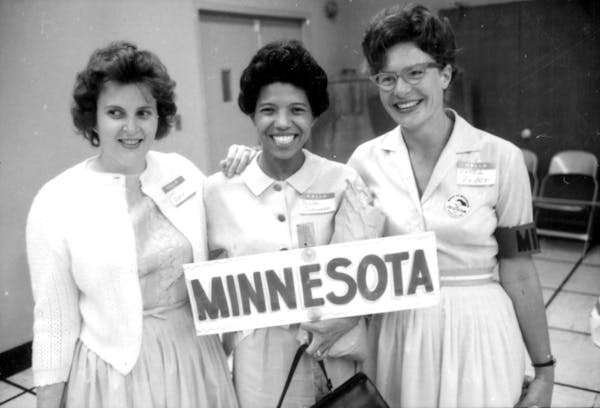Alone in the crowd, the Rev. Jesse Jackson watched through tears in the cool Chicago evening as the nation's next first family took the stage: a black man named Barack, a descendant of slaves named Michelle and their two young daughters.
As in much of the country, the feeling in Grant Park on election night nearly five years ago emerged from the heady pride of progress. But for Jackson, the moment pushed him backward, through decades, to memories of those who he called "the martyrs" of a movement whose successes Obama had inherited.
"I could see them coming across the stage," Jackson said. "Those caskets we marched behind. And the people who made that night possible couldn't afford to be there. They would be either dead or injured or poor."
Obama's relationship with the American civil rights movement has been a vexing one, challenging a cool, intellectual president to engage the memories and expectations of pioneers who marched, resisted and, in some cases, died before his birth.
Defend rights in peril
On Wednesday, the arc of that relationship will reach from Grant Park to the steps of the Lincoln Memorial. On the spot where the Rev. Martin Luther King Jr. described his dream 50 years ago, Obama will define a new front in the fight for equality and identify the mounting threats to progress emerging today.
In preparing for the address, Obama has assembled civil rights advocates at the White House to discuss state efforts making it more difficult to register to vote and cast ballots nearly 50 years after passage of the Voting Rights Act. He has met with faith leaders. He has phoned Rep. John Lewis, the Georgia Democrat who marched at Selma, Ala.
According to those he has spoken with, Obama will say that gays and lesbians, women's rights advocates, immigration activists and African-Americans must come together as a coordinated political movement to defend rights in peril, particularly at the ballot box, and to secure new ones in such areas as marriage equality and criminal sentencing.
Although the groups are at odds on some issues, the broader demand for equal treatment unites many of them in ways that the political movements of the 1950s could not.
But King spoke as a leader outside the government, affording him a certain rebel's freedom. Obama, as president, is searching to define his own role, constrained by his sense of race and by his responsibility to constituencies beyond King's.
"I don't think people want him to be the black president or speak to black issues," said a senior administration official, who spoke on the condition of anonymity to describe Obama's thinking about the speech and the moment it presents. "He's the president of the United States; he's not a civil-rights leader. So, his message will be far broader, directed at the country as a whole."
Obama has often declined to distinguish problems facing black communities from those confronting whites, Latinos and others, sometimes disappointing his mostly adoring black supporters.
Connect progress with past
"Barack came from talents, skill, temperament, and vision and preparation, and took it all the way across the goal line," Jackson said. "But he ran the last year of a 54-year race. He came out of a series of struggles to keep broadening the base. Surely, because he has won, it redefines what is possible."
Obama has not ignored black America. He has pushed for restrictions on gun sales as a way to combat violence, advocated for more money and accountability to improve urban schools, and signed the Fair Sentencing Act three years ago.
But, at times, he has adopted a scolding tone in speaking to young black men. "Nobody cares how tough your upbringing was," Obama told graduates at Morehouse. "… And moreover, you have to remember that whatever you've gone through, it pales in comparison to the hardships previous generations endured, and they overcame."
Administration officials said Obama will seek to connect the progress of the past 50 years with the work that must be done over the next 50. But there will probably be only a few specific policy prescriptions mixed into the longer story he will tell.
In heated western Minn. GOP congressional primary, outsiders challenging incumbent

Minnesota Sports Hall of Fame: A class-by-class list of all members

This retired journalist changed professional wrestling from Mankato

